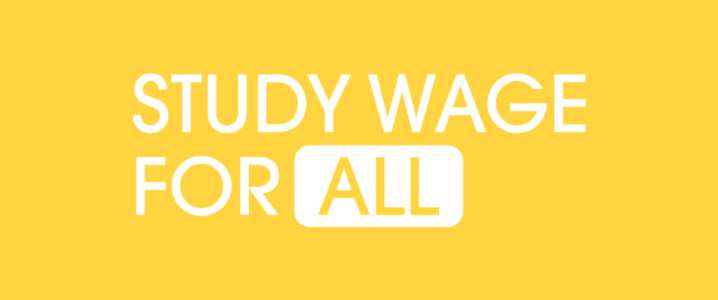We urge the Prime Minister and Ministers for Finance and Education to implement a universal study wage for all tertiary students.
By introducing a universal study wage for all tertiary students, at a decent rate, we can ensure all students can live with dignity and focus on their studies. We envision the Study Wage for All would initially be set at $385* a week (after tax), and annually re-calculated to ensure students can make ends meet.
We are proposing that all tertiary students will be eligible for a Universal Study Wage. This would abolish the current Student Allowance Scheme means-testing and other eligibility requirements.
Why is this important?
1. Learning is an inherently valuable contribution to society. To genuinely acknowledge education as a public good, we must value not only our educators, but also the students.
2. The current means-testing of the student allowance scheme exacerbates student poverty and is too flawed to truly ensure equity and fairness to marginalised groups.
3. We want to stop the downward trend of students dropping out because they can’t afford to keep studying. We need more students, including those who otherwise could not afford to study, in tertiary education so we have citizens prepared for an increasingly complex world.
4. Tertiary education is not just an investment into the individual, but to their whānau, community and Aotearoa.
5. Pre-1990, Aotearoa had relatively universal student allowances, and free tuition. Overseas, since 1996, Denmark has provided a universal student allowance too (which was 860 euros per month in 2022). Our own history and Denmark prove that a Study Wage for All is entirely possible.
Normalised student poverty is not inevitable, it is a political choice. There are no more excuses to keep putting student poverty on the back burner.
Barrier-free education is a public good that benefits our collective future. A Study Wage for All is critical to achieving this.
Reference:
* Calculations for a Universal Student Allowance prepared by the Parliamentary Library using HYEFU 2022 (at p148), the Ministry of Social Development’s Monthly Benefits Update – March 2023, current minimum wage rates, and StudyLink Statistics (2022).


